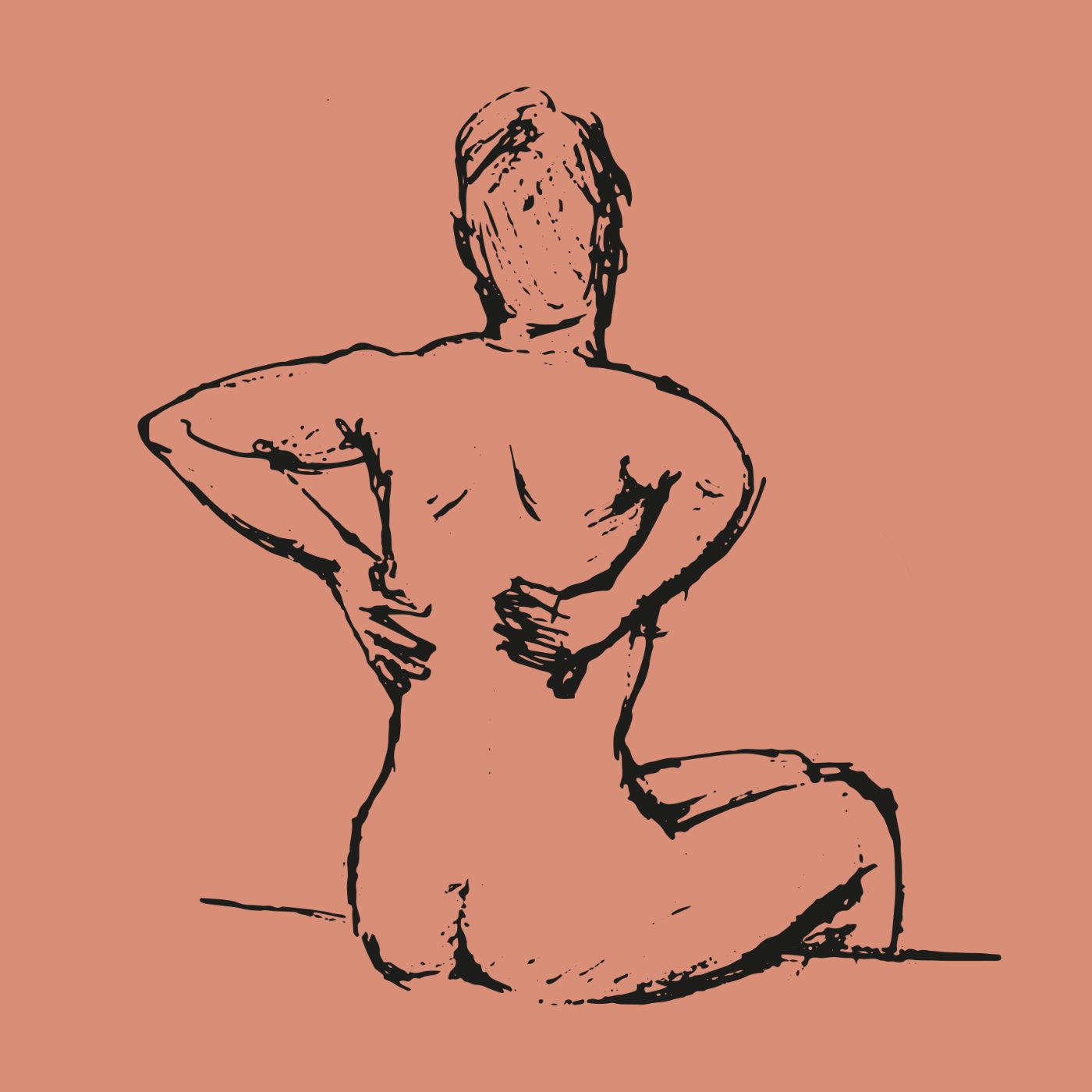Table of Contents
Table of Content
While cannabis is prohibited in some parts of the world, its derivative CBD, which is the subject of this article, is frequently found to be lawful for health and wellness usage. In this article we explore the legality of CBD in oral/topical forms and synthetic/natural variances around the world.
Laws on CBD are changing quickly, so please ensure that you are actively checking with local and relevant authorities before purchasing CBD.
The Legality of CBD in Oral and Topical Forms
United Kingdom
The Food Standards Agency set a deadline for all companies selling products for consumption in the UK to submit a Novel Food Application by 31 March 2021. CBD products sold in the UK are not for medicinal use. CBD is considered to be a food supplement (when ingested) and is legal. CBD flower is prohibited in the UK.
It is important to note, however, the Novel Food Application does not apply to topical forms of CBD, as this type of CBD has to comply with stringent cosmetic regulations in the UK and is legal if these regulations are complied with. Moreover, it is lawful in the UK to sell CBD products that have been processed outside of the UK as long as they do not contain any banned drugs, like THC or CBN, and are produced from hemp. Ingestible products still need to be covered by a Novel Foods Application, even if imported.
United States
Some CBD products, such as CBD gummies and any product that includes CBD in food or drink, are expressly prohibited by the federal government. A few states, however, appear to have rules that allow CBD to be added to foods and beverages.
CBD product labelling standards differ by state, and not all products are authorised to be sold in all 50 states. Louisiana, Indiana, North Carolina, and Kentucky, for example, prohibit the smoking of any CBD or hemp product, including flower, concentrates, and vapes. There are also states, like Idaho, where hemp and CBD are both illegal and heavily penalised. Cosmetics that can be described as a topical form of CBD are allowed in the United States, as the FDA allows for cannabis-derived ingredients in cosmetics.
Europe
CBD products derived from hemp plants with less than 0.2 percent THC are allowed to be consumed under European Union (EU) regulations. There are a few exceptions, such as Croatia and Slovenia, that apply an outright ban to all cannabis-derived substances, including CBD. Individual states also have varying applications of the rules and the level of THC allowed in the finished product.
Germany
CBD and medical cannabis are both legal in Germany and have been for more than two years. Patients who want CBD are required to obtain a marijuana card as well as a doctor’s prescription. This goes for both oral and topical forms of CBD.
Austria
The legal situation with CBD in Austria is a little more difficult than in Germany; cannabis flowers and extracts containing CBD can be sold legally, but not as a food supplement or prescription, and the maximum THC amount allowed is 0.3 percent. This means it can be legally sold and purchased topically but not orally.
Spain
CBD oil currently falls under the category of EU enforced laws, which means it is only legal for topical use and not for consumption, as long as the THC level is under 0.2%.
Portugal
In 2018, Portugal banned all CBD food products due to the European Union’s novel food regulation. However, Portugal established its medical cannabis laws and made CBD a prescription-only product. Thus oral forms of CBD are legal, but you need a valid, legal prescription. Topical CBD is permitted in cosmetic products.
Norway
In December 2017, the Norwegian Parliament decriminalised personal drug usage. CBD is allowed as long as there is no sign of THC. Norway is not a member of the EU, which has a THC limit of 0.2 percent. CBD is only allowed to be used and possessed if it has been prescribed by a doctor. These regulations are strict; CBD is strictly regulated by Norway’s Medicines Agency. This means both oral and topical forms of CBD are legal as long as there is no THC.
France
‘Products, and especially CBD-based e-liquids, are forbidden if they contain THC regardless of the rate and if they are not obtained from kinds and parts of recognised plants,’ according to a directive issued by the French health authorities in 2018. ‘The 0.2 percent THC limit principle exists to facilitate the use of hemp for industrial and commercial objectives’. This guideline appears to indicate that only CBD products with 0% THC are authorised for sale or consumption, which is contrary to EU regulations. Therefore, CBD in oral or topical forms is legal in France as long as there is no THC present.
Asia
China
Concerning the legality of CBD derived from hemp plants, the Chinese National Anti-Drug Committee recently stated that CBD is not a narcotic. CBD, on the other hand, is designated as an unapproved drug by China’s NMPA (previously known as FDA), indicating that it is not permitted for use in medicine or food.
CBD in topical form (Cosmetics) was also banned as of June 2021 when it was removed from the list of approved cosmetic ingredients.
Japan
In Japan, simply possessing cannabis can result in a five-year prison sentence, with additional sentences ranging from seven to ten years for production, sale, and transportation. CBD oil is, surprisingly, legal in Japan. However, the CBD has to be derived from seed or stalk only, which is not commercially viable and so legal CBD in Japan is almost always synthetically derived.
South Korea
CBD oil, either oral or topical, is legal, but only for medical reasons, and only from a small list of approved medications.
India
As of 2019, CBD products with low THC content are legal for generic consumption irrespective of the medical condition of the consumer. Although oral and topical forms with low THC concentrates are legal in India, you should pay attention to the percentage amount of each compound in a product.
Israel
The preliminary monthly prescription, according to the Israeli Ministry of Health, is for up to 20 grams of flower per month, in which “the concentration of active chemicals is the lowest.” If the presiding physician decides the patient requires more cannabis, the prescription can be increased to 30 grammes per month. A request for up to 100 grams per month can also be made by the patient. As part of their prescription, patients can get THC-rich, high CBD/low THC, and CBD oil. Therefore, with a prescription, oral and topical forms of CBD are legal in Israel.
Imported CBD exists in a legal grey area. The Israeli police have stated that CBD is not on their list of dangerous drugs, hence they will not prosecute anyone who imports CBD. Possession of CBD isolate products is likewise not prohibited, according to the authorities. Customs, on the other hand, has declared that they will obey the Health Ministry's guideline, which deems CBD to be unlawful (unless prescribed) and prohibits its import.
Thailand
Topical CBD is legal in Thailand.
The Ministry of Public Health (MOPH) issued several notifications in May 2021 to prescribe the criteria and requirements for the use of cannabis and hemp in cosmetics, including the permissible parts of the cannabis and hemp plant and extracts, the permissible level of THC and CBD, and applicable labelling and warning requirements.
In general, portions of cannabis and hemp that are no longer deemed drugs can be used, as long as they are dry and used for cosmetic purposes. It is prohibited to import cannabis and hemp parts as raw materials of cosmetics containing cannabis and hemp parts for cosmetic purposes. The notifications outline the types of cosmetics that can be made with these cannabis and hemp materials, as well as the maximum THC amount that can be employed.
Bhutan
There is no distinction in the law between CBD and cannabis. Despite the fact that CBD does not contain enough THC to cause a 'high,' it is nonetheless prohibited in Bhutan and cannot be purchased, used, or sold there. Oral and topical CBD is illegal.
Cambodia
In Cambodia, cannabis is easily available, yet it is illegal. Avoid purchasing any illegal cannabis products — while it is widely assumed that cannabis usage is tolerated in Cambodia, the penalties for possession and use are high, and you might face prison time. Therefore, oral and topical forms of CBD are also illegal.
Indonesia
Since 1927, cannabis has been prohibited in Indonesia, as have all of its derivatives. Avoid buying any cannabis products in Indonesia, even if they have a low THC content. Oral and topical forms of CBD are illegal.
Vietnam
Vietnam has a long cannabis history, but the law prohibits its use and sale. The government has discussed the legalization of medical CBD either orally or topically, but nothing has changed yet.
Oman
CBD in Oman is illegal in all forms.
Maldives
Oral and topical CBD in the Maldives is illegal.
Laamu Atoll
This is an administrative division of the Maldives. Oral and topical CBD is also illegal here.
Turkey
CBD oil itself is not expressly legal or illegal, but mixtures containing any traces of THC is considered illegal. While it may be legal to consume or to topically apply CBD, Turkey is not the best place for those who want to enjoy CBD oil and other Cannabis products. If you want to buy CBD in Turkey, you’ll likely have to obtain a doctor’s prescription. This is the same for Kaplankaya.
Oceania
CBD is legal in the two largest countries in the Oceania continent: New Zealand and Australia.
New Zealand
CBD oil is permitted as a prescription medication in New Zealand, and you may get it at your local pharmacy or from our partner pharmacy with a script. You can speak with a cannabis clinic medical professional or your own general practitioner to get a prescription in New Zealand. CBD in oral or topical form is legal if the content of THC and other psychoactive substances doesn’t exceed 2%.
Australia
The regulations around CBD products are strict in Australia, and they are not available over the counter. Australian health authorities permit CBD orally or topically by prescription if the content of other cannabinoids (including THC) doesn’t exceed 2%.
Fiji
CBD in Fiji is illegal in both oral and topical forms.
Africa
South Africa
The South African Health Minister recently modified the country’s Medicines and Related Substances Act, 1965, to remove some cannabidiol products from the list of non-essential medicines. South Africa is the first country in Africa to create a federally approved market for nonprescription CBD, thanks to a reform in the country’s drugs law. The rule modification applies to CBD products (oral and topical) with a maximum daily intake of 20 mg and a THC content of less than 0.001 percent.
Seychelles
Currently, the law in the country is that CBD is illegal. Following the publication of the new legislation in the official gazette, medical cannabis may soon be available to Seychelles patients. The Misuse of Drugs (Cannabidiol-based Products for Medical Purposes) Regulations, 2020 were published in February and are expected to be debated and approved by the National Assembly soon. The rule outlines the procedures that must be followed by parties in order to allow a patient or caregiver to obtain, possess, store, administer, or consume medicinal cannabis. This may mean that oral and topical forms of CBD will be legal through a valid, legal prescription - for medical purposes only.
South America
In South America, the legal status of CBD and other cannabis products differs from country to country.
Cannabinoids in oral and topical forms have been legalised in a number of different nations. CBD products with less than 1% THC content can be sold in Colombia and Mexico if they meet certain criteria. CBD has only been approved for medical usage in Brazil.
Brazil
CBD is only allowed for medical use in Brazil with permission from the National Sanitary Surveillance Agency (Anvisa). In Brazil, just one firm, CBD Vida, sells CBD-based medications with a prescription and a medical report. THC and CBD levels in imported cannabis products must not exceed 30 milligrammes per mL. Therefore, oral and topical forms of CBd are legal with a prescription and with the required amount of TCH.
Synthetic and Natural CBD
Natural CBD refers to CBD derived from Cannabis sativa plants, whereas synthetic CBD is a hemp-derived CBD isolate (i.e. pure CBD, free of other cannabinoids, such as THC, that are naturally found in the hemp plant) and is created in a laboratory using chemical or biological processes, such as yeast.
Synthetic CBD, on the whole, benefits from less stringent regulation than natural CBD.
The Legality of CBD in Synthetic and Natural Forms
United Kingdom
Natural CBD products in the United Kingdom must not contain more than 1mg of THC or CBN (it’s inaccurate to imply that they can have less than 0.2 percent THC; the regulation only applies to raw materials, not finished goods). You have to be fully certain about this. You are in possession of a controlled substance if your CBD oil contains these illegal cannabinoids.
Synthetic cannabinoids are classified as Class B substances in the United Kingdom under the Misuse of Drugs Act of 1971. CBD products derived from synthetic sources are considered new. Most synthetic CBD production is occurring in accordance with health and safety practices. The catalogue item for synthetic CBD verifies that CBD foods are Novel Foods by definition and should be subject to Novel Food Regulation, which requires a Novel Food Application.
United States
While the creation and sale of synthetic CBD is not technically prohibited in the United States, any CBD-infused product maker should think twice before taking that route. And, if they go that route, they should: (1) be aware of the policy and advocacy efforts being made against the use of this substance; (2) ensure that their product is safe for human consumption; and (3) make it clear on labels that the product contains synthetic rather than natural CBD so that customers can make informed decisions about their purchase. Therefore, while it may be legal in the United States to consume synthetic CBD, precaution must be taken when doing so.
The legality of natural CBD products differ from state to state. Please refer to relevant United States Authorities to determine the legality of natural CBD in your state.
Europe
The European Commission considered reclassifying CBD as a narcotic, which would significantly limit the scope of natural CBD in the European market. This, however, was ruled against.
Austria
The Austrian Ministry of Health recently indicated that synthetic CBD will be regulated under paragraph 78 of their drug law because it contains an active chemical that affects human functions, and its legality is being investigated. Natural CBD is lawful in Austria as long as the THC content is less than 0.3 percent.
Germany
Because the regulation does not cover all chemical structures, roughly 80-90 percent of the compounds belonging to the group of synthetic cannabinoids have been outlawed in Germany since November 26, 2016. Natural CBD is legal with a prescription.
France
The gaps between the French legislative framework and European Union (EU) legislation have increasingly faded, and all countries now agree that CBD containing no THC is legal.
The EU’s highest court has declared that the cannabis-derived chemical CBD is not a narcotic drug since it ‘does not appear to have any psychotropic impact or any negative effect on human health.’ The decision was taken in the case of KanaVape, a company that sells CBD oil manufactured from whole hemp plants, which was prosecuted in France. The ruling in France had not banned synthetic CBD, which has the same properties but is not produced using the entire cannabis plant.
Asia
China
According to China’s narcotics control bureau, the government will become the first in the world to regulate all synthetic cannabis chemicals, in an effort to stay ahead of new versions whose molecular qualities aren’t yet regulated.
Natural CBD in China was made illegal in June 2021.
India
In India, there is no clear prohibition or permit for CBD use, hence it exists in a legal grey area. You should use caution when purchasing CBD in its natural or synthetic forms in India until the government enacts more specific legislation.
Thailand
The use of synthetic CBD is illegal in Thailand, however, natural CBD produced locally (Not imported) and in the right quantities and THC levels is legal.
Bhutan
Natural CBD is illegal in Bhutan, as there is no difference in the law between CBD and cannabis. CBD in Bhutan cannot be purchased, used, or sold there. Oral and topical CBD is illegal. Synthetic CBD is also illegal.
Cambodia
CBD is illegal in Cambodia. Synthetic CBD is also illegal.
Indonesia
CBD is illegal in Indonesia. Synthetic CBD is also illegal.
Vietnam
CBD in all forms is strictly prohibited in Vietnam.
Oman
CBD in Oman is illegal in natural and synthetic forms.
Maldives
Natural and synthetic CBD in the Maldives is illegal.
Laamu Atoll
This is an administrative division of the Maldives. Natural and synthetic CBD is also illegal here.
Turkey
Natural CBD may be prescribed in Turkey, yet the law is unclear as to whether CBD is legal or not. Precaution must be exercised when purchasing in Turkey. Synthetic CBD is illegal, however. This applies for Kaplankaya too.
Oceania
New Zealand
Synthetic cannabinoids, as well as all other legal highs, were made illegal in 2014, after the New Zealand Government passed a law the week before. Natural CBD is legal with a prescription, as previously stated.
Australia
In June 2013, an interim ban made it illegal to sell a wide number of product brands and synthetic chemicals in Australia. This prohibition ended in October 2013, and no permanent prohibition has been enforced entirely. Synthetic cannabis and related goods are still prohibited in New South Wales (NSW), where a bill was approved on 18 September 2013, banning entire families of synthetic narcotics rather than just existing substances. With the passage of this legislation, NSW became the first state in Australia to outright prohibit the use of psychoactive substances. Productsaftey.gov.au
Fiji
CBD in Fiji is illegal in both natural and synthetic forms.
South America
Natural CBD is highly unregulated in South America. Most countries’ health authorities authorise CBD only by prescription. It is unclear as to the law or legal ramifications on synthetic CBD in South America. It would be essential to check with local authorities before purchasing.
Africa
South Africa
Individuals in South Africa with a prescription can obtain medicinal cannabis in the form of CBD from their local pharmacies. A permit from the Department of Health is required for synthetic CBD. Synthetic CBD can only be accessed by means of a permit issued by the Director-General of the National Department of Health.
Natural CBD is also legal under the conditions that you must not consume more than a maximum daily dose of 20 milligrams of CBD and that it contains not more than 0.001% of THC and not more than 0.0075% total CBD.
The violation of the Medicines Act due to unlawful medicinal use of cannabis carries serious criminal sanctions (up to 10 years imprisonment, with or without a fine).
Seychelles
Currently, the law in the country is that natural and synthetic CBD is illegal. However, this might be amended as natural CBD for medical purposes only might be legalised.




